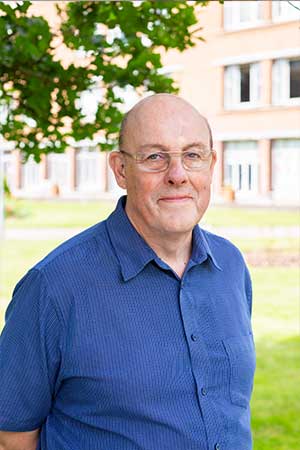When he was approaching retirement, Howard Carlton decided to turn his hobby into a PhD in History. He tells us about his experience as a researcher at the University of Birmingham.
 Why did you choose to study a PhD in History?
Why did you choose to study a PhD in History?
“I have always been interested in history and had read quite a lot around the subject during a lengthy career in IT. When retirement was approaching, I decided to turn my hobby into an activity which would keep me intellectually engaged with the world at large and, hopefully, would allow me to make a useful contribution to the body of historical writing and understanding. I initially took a full-time MA in the History of Christianity and then decided to continue my studies for a further 6 years by researching, on a part-time basis, for a PhD.”
Why did you choose to undertake research at the University of Birmingham?
“The University of Birmingham represented an optimal combination of locality and high reputation in history teaching and research. It also offered a taught Masters in the History of Christianity which was a topic of particular interest to me, given that my father had been for a number of years a minister in the Baptist church.”
What are the best things about your course?
“I have always enjoyed the idea of life in academia and welcomed the opportunity to work with people who have similar interests and commitment to research. The library facilities at Birmingham have been essential to my work as has the ongoing and thoughtful support I received from my two supervisors. It has also been really interesting to associate and work with my ‘peer group’ of PhD researchers who have acted as a useful source of mutual support.”
What is life like as a researcher at the University of Birmingham?
“Much of my work in 19th century history can actually be undertaken from home, given that many of the required resources are available online (many of these depend on books and journals which the library has subscribed to on behalf of students and academics). Nonetheless, I have found it important to make regular contact with peers, supervisors and academic staff in order to share ideas and to feel part of a larger community.”
What support have you received during your PhD?
“In addition to the considerable help I have had from my supervisors I have been able to attend a number of courses and seminars which have assisted the development of ‘soft’ skills such as reading, editing, writing and presenting my work. The library and IT services have also been important to my day to day work.”
Outside of your research, what experience have you gained and how will it help you in the future?
“The process of writing a PhD thesis has actually opened up a number of other opportunities to expand my horizons. I have attended and presented at a number of academic conferences in the UK and USA, have published two papers and have taught Economic History to first year undergraduates for two years (which involved me becoming a lot more knowledgeable about this particular subject). The most likely next development is for me to publish my research work to a wider audience in the form of a book.”
Find out more studying for a PhD in History over on our course pages.